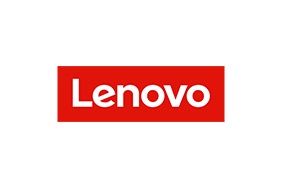How AI Is Changing the Face of Sustainability
Greg Smith, Executive Director and General Manager, EMEA Services and Solutions Group
Published 07-18-24
Submitted by Lenovo

AI (Artificial Intelligence) has rapidly grown to dominate the headlines over the past 12 months, proving one of the most topical evolving technologies. From generative AI, where chatbots such as ChatGPT respond to customer queries, to limited memory AI, where self-driving vehicles attempt to navigate the world around them, AI is big business, amounting to around 200 billion U.S. dollars in 2023 alone, and expected to grow to over 1.8 trillion U.S. dollars by 2030[1].
Artificial intelligence is far from limited to responding to questions or creating customer artwork – it’s ideal for sifting through and making sense of big data. Put simply, AI can help to turn data into actionable insights, helping people and organisations to make more informed choices about business operations. As such, it’s a useful technology when it comes to identifying and driving sustainability initiatives.
AI’s contribution to environmental applications
Without major changes to the way we treat our planet, it will suffer unrepairable damage, but AI can be a powerful tool when it comes to tackling climate change, biodiversity loss, and pollution, helping to create a brighter, more sustainable future.
According to PwC, using AI for environmental applications could contribute up to $5.2 trillion USD to the global economy in 2030[2]. The same report estimates that the application of AI solutions could reduce worldwide greenhouse gas (GHG) emissions by 4% in 2030, an amount equivalent to 2.4 Gt CO2e – equivalent to the 2030 annual emissions of Australia, Canada and Japan combined.
Insights specialists EY explains that AI can play an accelerated role in resource stewardship, highlighting its ability to help enable circular and equitable supply chains, reduce resource consumption, decarbonise energy and mobility, accelerate sustainable product and service innovation, shape materials science, and protect and enhance biodiversity.
It can be used to help create smarter, more efficient energy grids, for example, managing the supply and demand of renewable energy using deep learning and predictive capabilities. As such, it can support decarbonisation, contributing to the UN’s Sustainable Development Goals by ensuring a supply of affordable, reliable, and clean energy.
Its ability to trawl through huge amounts of data, picking out patterns and creating more accurate models, can support precision agriculture, with improved monitoring of environmental conditions and crop yields.
The technology can contribute to a reduction in traffic congestion, through more intelligent and reactive mapping, with real-time journey planning helping logistics industries to pick the least congested routes. This has huge potential when it comes to organisations optimising their logistics, and real-time mapping will also play a large role in the introduction of autonomous vehicles.
AI can be applied in water resource prediction as well, where management and monitoring can help to improve the global water crisis by reducing or eliminating waste, as well as lowering costs and lessening environmental impacts.
EY adds: “AI can catalyse the acceleration of needed sustainability responses across complex natural, economic and social systems. It can help us act at the necessary pace and scale by augmenting the human ability to learn, analyse, innovate, predict and decide – exponentially.”
Of course, AI isn’t a catch-all solution to the challenges we face when it comes to sustainability. It needs to be interwoven with other approaches, complimenting existing solutions. Far from modern fears of AI taking our jobs, it can actually help people to do their jobs more effectively, with the ability to understand data to make better decisions and affect broader sustainability changes.
Introducing Lenovo’s own AI
With this in mind, we’ve been working on our own AI-powered Sustainability engine at Lenovo, called L.I.S.S.A. (Lenovo Intelligent Sustainability Solutions Advisor).
We already offer our customers a 360-degree approach to sustainability, from energy-efficient technology to sustainable packaging, efficient mode of transport, asset recovery, as-a-service models and CO2 Offset Services. Now, with our in-house capability L.I.S.S.A., we can help customers make more informed choices when it comes to meeting their IT sustainability goals.
Alongside our consultative approach to sustainability, L.I.S.S.A. helps evaluate the estimated carbon emissions impact of different Lenovo IT solutions and offers recommendations to potential IT solutions that can optimise your budget and design pathways to support the decarbonisation of your IT environment.
This encourages data-driven decision making in sustainability and enables customers to plan proactively and choose the right mix of IT solutions that align with their sustainability strategies.
Embracing AI for a more sustainable future
Whether we’re looking at AI with regard to sustainability, or across other industries, it’s clear we’re very much at the start of an exciting journey. It’s a journey which has the potential to change the world as we know it. AI has come a long way in a relatively short space of time, but it’s only going to get smarter, and it can help us drive efficiencies faster.
As PwC explains: “There is enormous potential for AI to be an important tool in the effort to decouple economic growth from rising carbon emissions. In other words, there is a path towards a prosperous, just, and more sustainable future with advanced technologies.”
[1]Statista – Artificial intelligence (AI) worldwide – statistics & facts
[2]PwC – How AI can enable a sustainable future

Lenovo
Lenovo
Lenovo is a US$57 billion revenue global technology powerhouse, ranked #248 in the Fortune Global 500, and serving millions of customers every day in 180 markets. Focused on a bold vision to deliver Smarter Technology for All, Lenovo has built on its success as the world’s largest PC company with a pocket-to cloud portfolio of AI-enabled, AI-ready, and AI-optimized devices (PCs, workstations, smartphones, tablets), infrastructure (server, storage, edge, high performance computing and software defined infrastructure), software, solutions, and services. Lenovo’s continued investment in world-changing innovation is building a more equitable, trustworthy, and smarter future for everyone, everywhere. Lenovo is listed on the Hong Kong stock exchange under Lenovo Group Limited (HKSE: 992) (ADR: LNVGY). To find out more visit https://lenovo.com and read about the latest news via our StoryHub.
More from Lenovo

